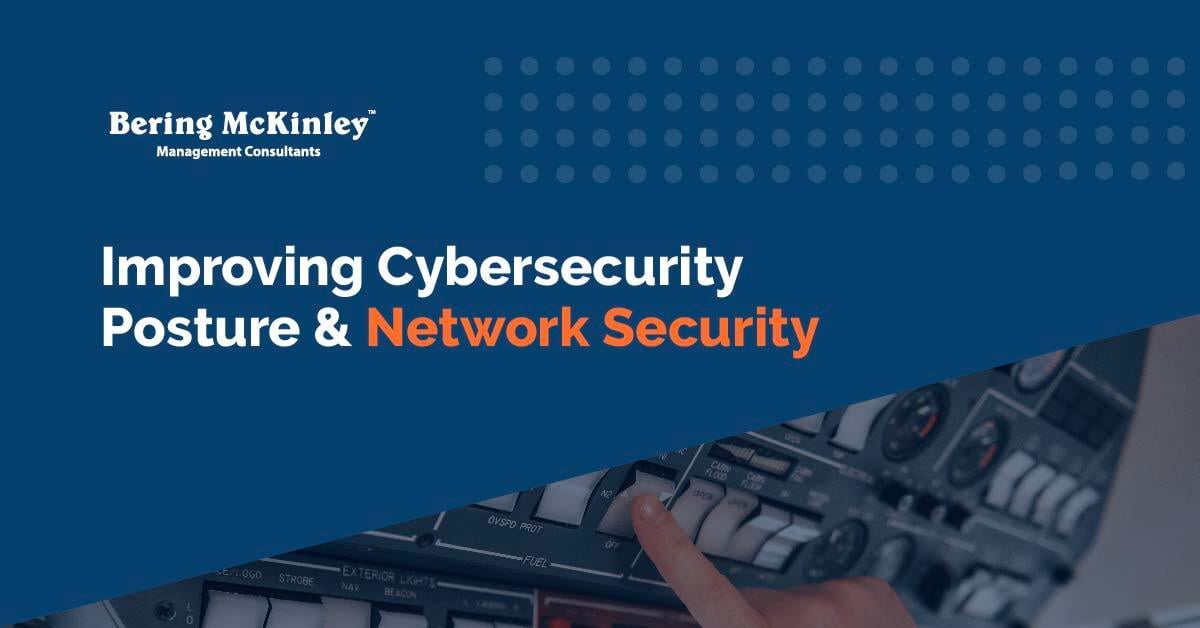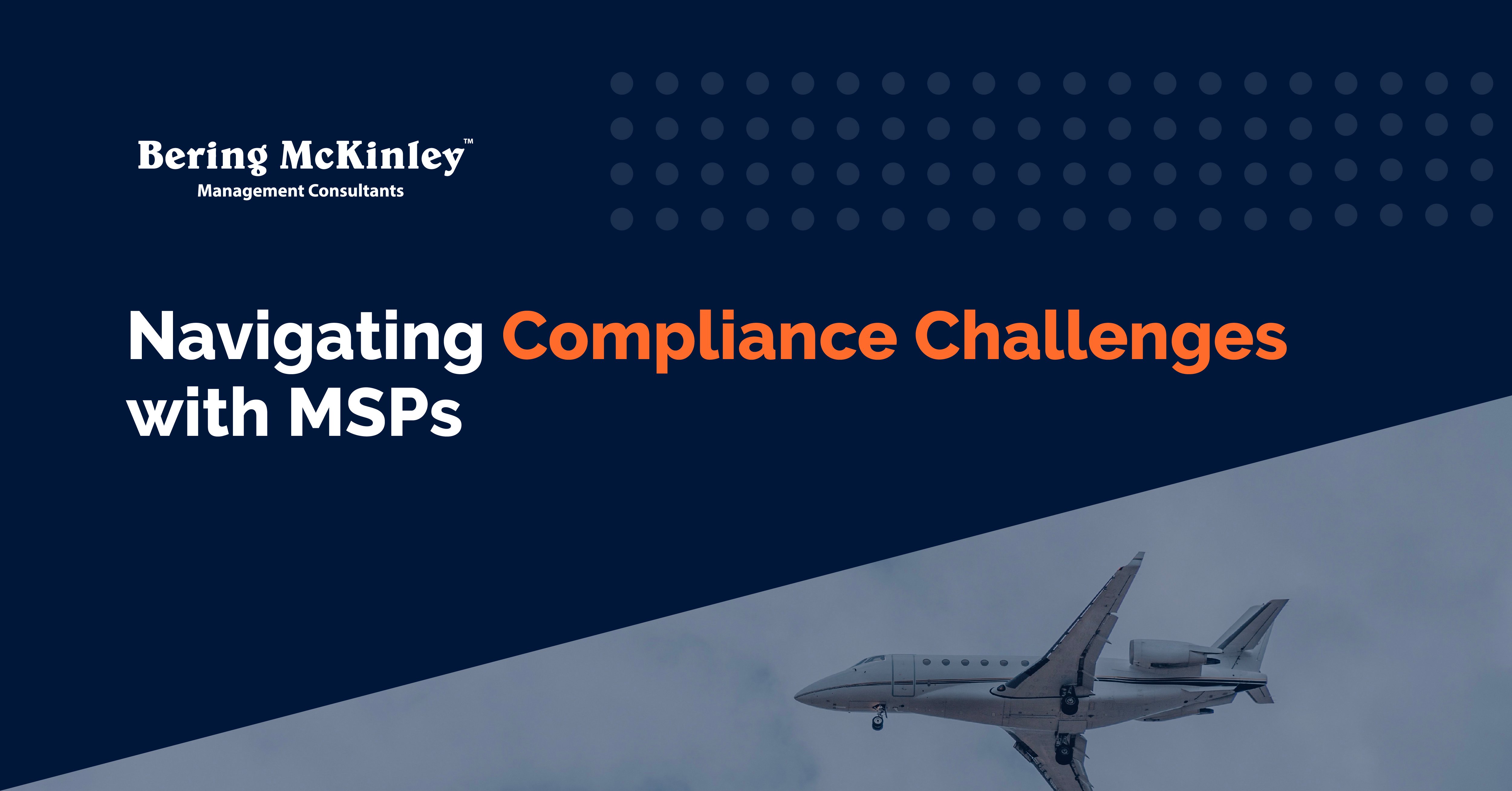4 min read
How MSPs Improve Cybersecurity Posture & Network Security
 Josh Peterson
:
Updated on May 30, 2025
Josh Peterson
:
Updated on May 30, 2025

Cybersecurity and network security are not just buzzwords but critical components of any business strategy. Maintaining a robust cybersecurity posture can seem daunting, especially for small businesses and IT professionals. That's where Managed Service Providers come into play. These third-party experts can transform your security landscape, making it more resilient and efficient.
Why Cybersecurity and Network Security Matter
Digital threats are evolving at an unprecedented rate. Whether through phishing scams, ransomware, or data breaches, cyber-attacks can cripple a business. Small businesses are often targeted because they may lack the sophisticated defenses of larger corporations. IT professionals are constantly pressured to safeguard sensitive information and maintain network integrity.
Understanding the gravity of these challenges is essential. A cyber-attack can result in financial loss and tarnish your reputation. This is why investing in cybersecurity and network security is non-negotiable.
The Role of MSPs in Cybersecurity
Managed Service Providers (MSPs) offer a lifeline to businesses struggling with cybersecurity. They bring specialized expertise and resources to manage and monitor your IT systems. Outsourcing these responsibilities to an MSP frees up internal resources to focus on core business activities.
MSPs provide 24/7 monitoring, ensuring that security threats are identified and mitigated in real time. This level of vigilance is often beyond the capacity of in-house IT teams, especially in smaller organizations. MSPs also stay abreast of the latest cybersecurity trends and technologies, ensuring your defenses are always up to date.
Comprehensive Risk Assessment and Management
One of the first things an MSP will do is conduct a thorough risk assessment. This involves identifying potential vulnerabilities in your network and evaluating the likelihood and impact of various cyber threats. The goal is to develop a comprehensive risk management plan tailored to your specific needs.
Risk assessments are not a one-time activity. MSPs continually monitor your network to identify new vulnerabilities and adjust your security measures accordingly. This proactive approach ensures that you are always one step ahead of potential threats.
Advanced Threat Detection and Response
In the world of cybersecurity, time is of the essence. The quicker you can detect and respond to a threat, the less damage it can do. MSPs leverage advanced threat detection technologies to identify malicious activities before they can cause significant harm.
These technologies include intrusion detection systems (IDS) and intrusion prevention systems (IPS), which monitor network traffic for suspicious activities. When a potential threat is detected, the MSP's response team springs into action, neutralizing the threat and minimizing its impact.
Employee Training and Awareness
Human error is one of the weakest links in any cybersecurity strategy. Phishing attacks, for example, prey on employees' lack of awareness. MSPs offer comprehensive training programs to educate your staff on best practices for cybersecurity.
Training sessions cover topics such as recognizing phishing emails, creating strong passwords, and safe internet browsing habits. By empowering your employees with knowledge, you significantly reduce the risk of human error leading to a security breach.
Data Encryption and Secure Communication
Data encryption is a fundamental aspect of cybersecurity. MSPs implement robust encryption protocols to protect sensitive information both at rest and in transit. This ensures that even if data is intercepted by malicious actors, it remains unreadable and useless.
Secure communication channels are also essential. MSPs set up virtual private networks (VPNs) and secure email gateways to protect your communications from eavesdropping and tampering. These measures are critical for maintaining the confidentiality and integrity of your data.
Regular Software Updates and Patch Management
Outdated software is a common entry point for cyber-attacks. MSPs ensure that all your software and systems are regularly updated with the latest security patches. This eliminates known vulnerabilities and reduces the risk of exploitation.
Patch management is not just about applying updates. MSPs also test patches before deployment to ensure they do not disrupt your operations. This meticulous approach ensures that your systems remain both secure and functional.
Incident Response Planning
Despite your best efforts, a security incident may still occur. Having a robust incident response plan in place is crucial for minimizing the impact of a breach. MSPs help you develop and implement an effective response strategy.
An incident response plan outlines the steps to take in the event of a security breach, including how to contain the incident, eradicate the threat, and recover from the attack. MSPs also conduct regular drills to ensure that your team is prepared to execute the plan effectively.
Compliance with Industry Standards
Many industries have specific regulations and standards for cybersecurity. Compliance is not just about avoiding fines; it's also about demonstrating your commitment to protecting sensitive information. MSPs ensure that your security measures meet or exceed industry standards.
Compliance requirements can be complex and time-consuming. MSPs relieve the burden by managing all aspects of compliance, from initial assessments to ongoing monitoring and reporting.
Cost-Effective Security Solutions
Hiring a full-time, in-house cybersecurity team can be prohibitively expensive, especially for small businesses. MSPs offer a cost-effective alternative, providing access to top-tier security expertise and technologies at a fraction of the cost.
You can achieve enterprise-level protection without breaking the bank by outsourcing your cybersecurity needs to an MSP. This allows you to allocate more resources to other critical areas of your business.
Building a Cyber-Resilient Culture
Cybersecurity is not just about technology; it's also about culture. MSPs work with you to build a cyber-resilient culture within your organization. This involves promoting a security-first mindset and encouraging employees to take ownership of their role in protecting the business.
A strong cybersecurity culture is characterized by proactive behavior, continuous learning, and a commitment to best practices. MSPs provide the tools and support needed to foster this culture, ensuring that everyone in your organization is aligned with your security goals.
Networking Security Enhancements
Your network is the backbone of your IT infrastructure, and its security is paramount. MSPs implement a range of security measures to protect your network from external and internal threats, including firewalls, intrusion detection systems, and secure access controls.
Network segmentation is another critical strategy. By dividing your network into smaller, isolated segments, MSPs limit the spread of cyber threats. This ensures that the rest of your network remains secure even if one segment is compromised.
Proactive Monitoring and Maintenance
Cybersecurity is not a set-it-and-forget-it endeavor. Continuous monitoring and maintenance are essential for staying ahead of threats. MSPs provide round-the-clock monitoring of your IT systems, detecting and addressing issues before they escalate.
Regular maintenance activities, such as system updates and vulnerability scans, are also critical. MSPs ensure that your security measures are always up-to-date and functioning optimally. This proactive approach minimizes downtime and ensures the resilience of your IT infrastructure.
%20(6)-1.png)
Understanding the Five Steps of The Customer Journey
We all have moments when we wish we could read our clients' minds to find that perfect combination of words that'll guarantee a sale. While we can't...



